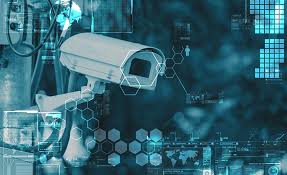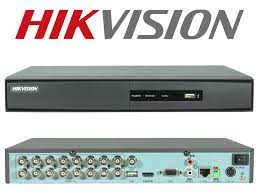AI CCTV Cameras: Revolutionising Security Surveillance
In recent years, the integration of artificial intelligence (AI) into CCTV cameras has significantly transformed the landscape of security surveillance. AI-powered CCTV cameras offer enhanced features that go beyond traditional surveillance systems, providing smarter and more efficient security solutions.
What are AI CCTV Cameras?
AI CCTV cameras are equipped with advanced algorithms and machine learning capabilities that enable them to analyse video footage in real-time. Unlike conventional cameras that merely record footage for later review, AI cameras can detect unusual activities, recognise faces, and even identify objects or individuals of interest.
Key Features of AI CCTV Cameras
- Real-Time Analysis: AI cameras process video feeds as they are captured, allowing for immediate detection of anomalies or potential threats.
- Facial Recognition: These cameras can identify individuals by comparing captured images against a database of known faces, enhancing access control and security measures.
- Object Detection: AI technology enables the identification and categorisation of objects within the camera’s field of view, such as vehicles, bags, or weapons.
- Behaviour Analysis: By analysing patterns in movement and behaviour, AI cameras can predict potential security breaches or suspicious activities.
- Anomaly Detection: The system can alert operators to unusual activities that deviate from expected patterns, such as loitering or crowd formation.
The Benefits of Using AI CCTV Cameras
The deployment of AI-powered surveillance systems offers numerous advantages:
- Enhanced Security: With their ability to detect threats in real-time, these cameras provide a proactive approach to security management.
- Reduced Human Error: Automated analysis reduces reliance on human operators who may miss critical events due to fatigue or distraction.
- Cost Efficiency: By minimising false alarms and focusing on genuine threats, organisations can optimise their resource allocation and reduce operational costs.
- Diverse Applications: From retail environments to public spaces and private properties, AI CCTV systems are versatile tools suitable for various sectors.
The Future of Surveillance with AI CCTV Cameras
The future holds exciting possibilities for AI-enhanced surveillance systems. As technology continues to advance, we can expect even greater accuracy in threat detection and more sophisticated analytical capabilities. Integration with other smart technologies will likely lead to comprehensive security ecosystems capable of autonomously managing complex environments.
The adoption of AI CCTV cameras is set to redefine how we approach security challenges. By leveraging the power of artificial intelligence, these systems offer a robust solution for safeguarding people and assets in an increasingly complex world.
7 Key Questions About AI CCTV Cameras: Features, Benefits, and Privacy Concerns
- What is an AI CCTV camera?
- How does AI technology enhance CCTV cameras?
- What are the key features of AI-powered CCTV cameras?
- Can AI CCTV cameras recognise faces and objects?
- What benefits do AI CCTV cameras offer compared to traditional surveillance systems?
- Are there privacy concerns associated with using AI in CCTV cameras?
- How can businesses or individuals integrate AI CCTV cameras into their security systems?
What is an AI CCTV camera?
An AI CCTV camera is an advanced surveillance device that incorporates artificial intelligence technologies to enhance its monitoring capabilities. Unlike traditional CCTV cameras that simply capture and store video footage for later review, AI CCTV cameras are equipped with sophisticated algorithms that enable real-time analysis of the video feed. These cameras can detect unusual activities, recognise faces, and identify objects or individuals of interest, all without human intervention. By leveraging machine learning techniques, AI CCTV cameras continuously improve their accuracy and efficiency over time, making them a powerful tool for proactive security management in various settings such as commercial premises, public spaces, and residential areas.
How does AI technology enhance CCTV cameras?
AI technology significantly enhances CCTV cameras by introducing advanced capabilities that traditional systems lack. Through the use of machine learning algorithms and real-time video analytics, AI-powered CCTV cameras can automatically detect and respond to unusual activities or potential security threats. Features such as facial recognition allow these cameras to identify individuals by comparing live footage with a database of known faces, improving access control and security monitoring. Additionally, AI technology enables object detection and behaviour analysis, allowing the system to categorise objects like vehicles or bags and predict suspicious activities based on movement patterns. This automation not only reduces the likelihood of human error but also ensures a more efficient allocation of security resources, making surveillance systems more proactive and responsive in safeguarding environments.
What are the key features of AI-powered CCTV cameras?
AI-powered CCTV cameras are equipped with a range of advanced features that enhance their surveillance capabilities significantly. One of the key features is real-time video analysis, which allows these cameras to process and interpret footage as it is captured, enabling immediate detection of unusual activities or potential threats. They also come with facial recognition technology, which can identify individuals by matching their faces against a database of known profiles, thereby strengthening access control measures. Another important feature is object detection, where the cameras can recognise and categorise various objects within their field of view, such as vehicles or unattended bags. Additionally, AI CCTV cameras offer behaviour analysis by studying patterns in movement and actions to predict possible security breaches. Anomaly detection further enhances security by alerting operators to activities that deviate from normal patterns, ensuring a proactive approach to threat management. These features collectively make AI-powered CCTV cameras an invaluable tool for modern security systems.
Can AI CCTV cameras recognise faces and objects?
AI CCTV cameras are equipped with advanced facial and object recognition capabilities, allowing them to identify and differentiate between various faces and objects in their field of view. Utilising sophisticated algorithms and machine learning techniques, these cameras can compare captured images against a database of known faces to accurately recognise individuals. This feature is particularly beneficial for enhancing security measures in restricted areas or for access control purposes. Additionally, AI CCTV systems can detect and classify objects such as vehicles, bags, or other items of interest, enabling them to alert operators to potential security threats or anomalies in real time. This dual capability significantly enhances the effectiveness and efficiency of modern surveillance systems.
What benefits do AI CCTV cameras offer compared to traditional surveillance systems?
AI CCTV cameras offer several advantages over traditional surveillance systems, making them a superior choice for modern security needs. One of the primary benefits is their ability to perform real-time analysis of video footage, allowing for immediate detection and response to unusual activities or potential threats. Unlike conventional cameras that require manual monitoring, AI-powered systems can automatically identify faces, recognise objects, and analyse behaviours without human intervention. This reduces the likelihood of human error and ensures a more proactive approach to security management. Additionally, AI CCTV cameras can significantly reduce false alarms by distinguishing between genuine threats and benign movements, leading to more efficient use of resources. Their advanced features also enable integration with other smart technologies, creating comprehensive security solutions that are adaptable to various environments and requirements.
Are there privacy concerns associated with using AI in CCTV cameras?
The use of AI in CCTV cameras has raised significant privacy concerns, primarily due to the advanced capabilities of these systems to collect and analyse vast amounts of data. AI-powered cameras can perform facial recognition, track movements, and identify individuals, which leads to worries about surveillance overreach and the potential misuse of personal data. There is a growing debate about the balance between enhancing security and protecting individual privacy rights. To address these concerns, it is crucial to implement strict regulations and guidelines that govern the use of AI in surveillance systems, ensuring transparency and accountability. Additionally, organisations deploying such technologies should prioritise data protection measures and inform individuals about how their data is being used, stored, and safeguarded.
How can businesses or individuals integrate AI CCTV cameras into their security systems?
Integrating AI CCTV cameras into existing security systems can be a strategic move for businesses and individuals looking to enhance their surveillance capabilities. The first step is to assess the specific security needs and identify areas where AI can add value, such as facial recognition, behaviour analysis, or anomaly detection. Once the requirements are clear, selecting the right AI-enabled cameras that offer these features is crucial. Installation should be carried out by professionals to ensure optimal coverage and connectivity with current security infrastructure. It’s also important to integrate the AI cameras with existing software platforms for seamless data management and real-time alerts. Regular training sessions for security personnel on how to interpret AI-generated insights can maximise the system’s effectiveness. By taking these steps, businesses and individuals can create a more proactive and intelligent security environment that leverages the power of artificial intelligence.


